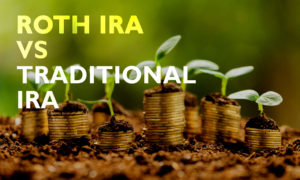Stocks vs Bonds
 I love that my readers are thinking about investments!! I hope we all bread win one day and investments will certainly help. The big question is should you invest in stocks or bonds or what? I thought it would be a good idea to write a quick article explaining what both stocks and bonds actually are to help us make the right investment choices for our own personal goals.
I love that my readers are thinking about investments!! I hope we all bread win one day and investments will certainly help. The big question is should you invest in stocks or bonds or what? I thought it would be a good idea to write a quick article explaining what both stocks and bonds actually are to help us make the right investment choices for our own personal goals.
In short, they are two different ways for a company to raise money.
Stock
A stock is simply a share of an individual company. You can think of it as an ownership percentage. For example, if a company has 100 total shares and you buy 10 of them then you would be a 10% owner (my boyfriend tells me this is a gross exaggeration). Stocks are often referred to as ownership. So in my overly simplistic example… *rolling my eyes*… if the stock moves from $5 to $10 then I would have made $5 per share. Since I own 10 shares my investment would have grown $50. Sometimes stocks pay dividends also.
Roth IRA vs Traditional IRA
The type of individual retirement account you choose can affect your long-term savings plan. So I figured it’s worth it to understand the difference between the two options. If your employer offers a 401K then check out this article before continuing on:
What are the major differences between a Roth IRA and a Traditional IRA?
- Taxes
- Both have great tax benefits and breaks. But it is a matter of timing on when you get to realize these tax breaks. The Traditional IRA makes any contributions tax-deductible on both state and federal tax returns for the year you make the contribution. However, withdrawals in retirement are taxed at ordinary income tax rates.
- Roth IRA provide no tax benefits for contributions, but any earnings and withdrawals are tax free.
- In summary, Traditional IRA has tax benefits on the way in and Roth IRA has tax benefits on the way out!
- Income limits
- Anyone with income and younger than 701/2 years old can contribute to a Traditional IRA. Whether or not Traditional IRA contributions are tax deductible depends on your income and if you (or your spouse) are covered by a retirement plan through your job.

